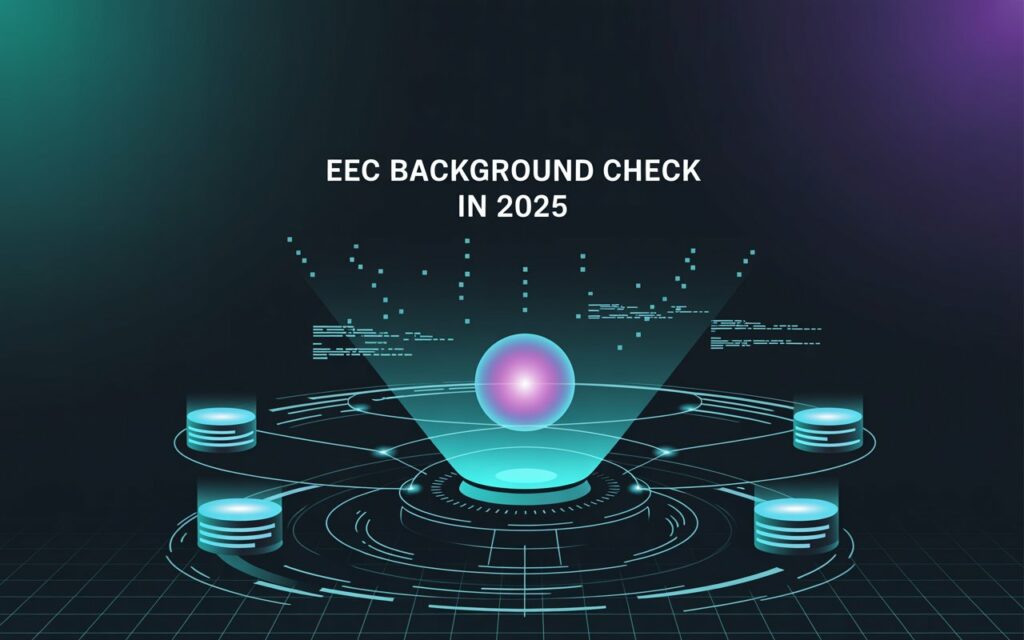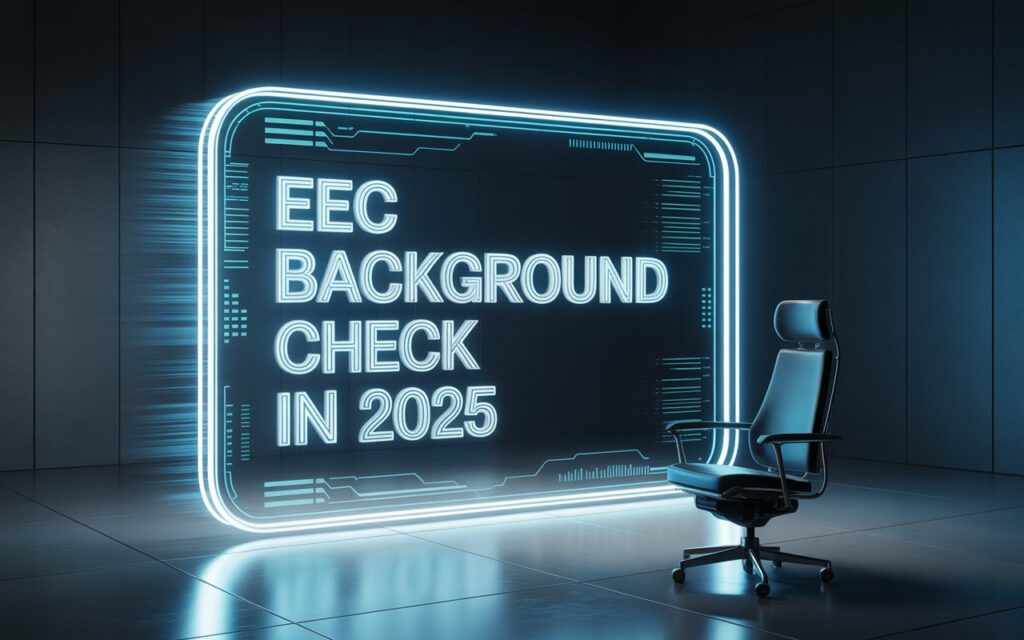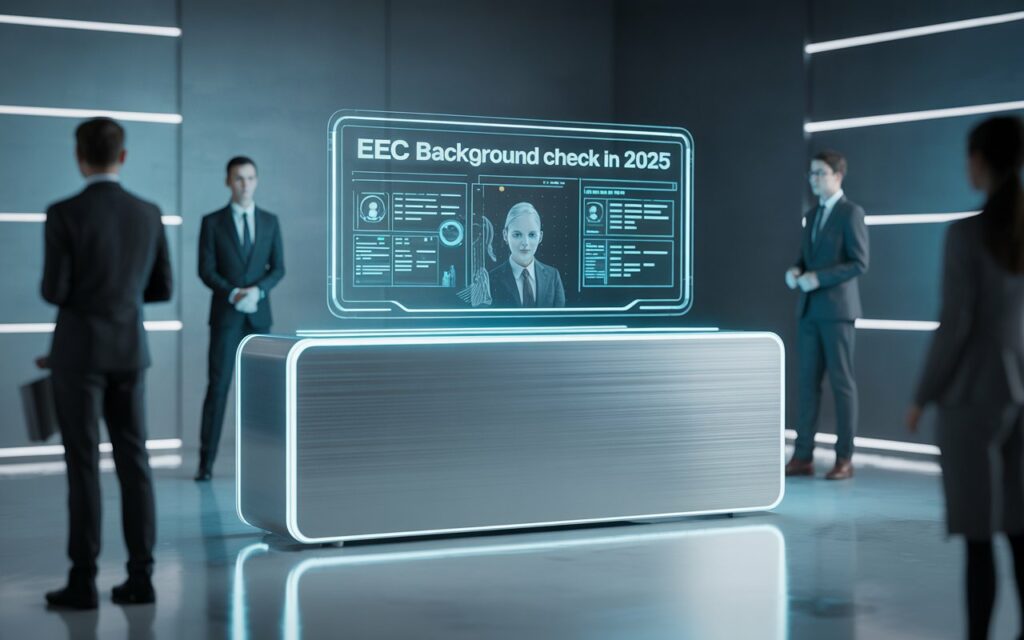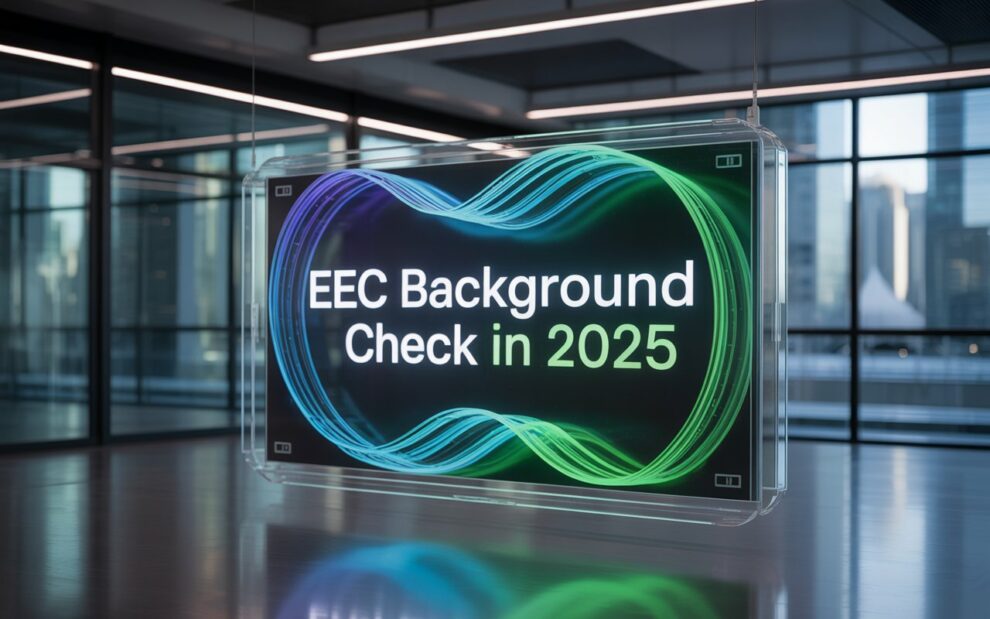EEC Background Check in 2025: Everything You Need to Know About Early Education Screening Requirements This Year
Table of Contents
In 2025, ensuring the safety and well-being of children in early education environments is more important than ever. That’s why the EEC background check—required by the Massachusetts Department of Early Education and Care (EEC)—remains a vital process for anyone working with children.
Whether you’re applying for a childcare position, volunteering, or managing a licensed program, understanding the EEC background check is essential. This guide covers everything from its purpose and process to how to prepare and what to expect in the future.
The Purpose of the EEC Background Check
The primary goal of the EEC background check is to ensure that children are cared for in safe, trustworthy environments. By screening for criminal offenses, child abuse histories, and other disqualifying factors, the background check helps prevent individuals who pose a risk from entering childcare roles.
It also fulfills requirements under state law and the federal Child Care and Development Block Grant (CCDBG) to promote transparency, safety, and accountability in early childhood education.
What Does the EEC Background Check Involve?
As of 2025, the EEC background check includes:
- CORI (Criminal Offender Record Information) Check
Reviews criminal history in Massachusetts, including arrests, convictions, and pending cases. - DCF (Department of Children and Families) Check
Searches for involvement in cases of child abuse or neglect. - FBI Fingerprint Check
Provides a nationwide criminal history search through fingerprint identification.
Each component plays a critical role in evaluating a person’s suitability for working with children.
The Process of Obtaining an EEC Background Check

Step 1: Initiation
The process begins when a licensed childcare provider, employer, or program administrator initiates the background check. This is done through the EEC BRC Navigator System, an online platform managed by the Massachusetts Department of Early Education and Care (EEC). This system allows employers to enter applicant details, submit requests for background checks, and track the status of submissions in real time.
Step 2: Consent and Verification
Before any records are accessed, the applicant must provide written consent. The steps include:
- Signing a consent form: This gives the EEC legal permission to conduct the background check across multiple databases.
- Presenting valid government-issued ID: Such as a driver’s license, passport, or state ID, to confirm identity.
- Completing identity verification: This often involves uploading identification through the online portal and answering identity verification questions.
This step ensures the applicant’s identity is authenticated and that all searches are legally authorized.
Step 3: Fingerprinting
Fingerprinting is a key component of the background check because it links the applicant to any criminal history at a national level.
- Applicants must schedule an appointment with IdentoGO, the fingerprinting vendor contracted by the state.
- The cost is usually around $35, and the appointment typically lasts 15 minutes.
- Fingerprints are then electronically submitted to the FBI for a nationwide criminal history search.
Step 4: Review and Determination
Once all data is collected, the EEC reviews the results from:
- CORI (Criminal Offender Record Information)
- DCF (Department of Children and Families)
- FBI fingerprint database
The EEC evaluates the findings against their eligibility criteria. If nothing disqualifying is found, the applicant is approved. If concerning information is uncovered, the individual may be deemed “not suitable” and notified of the decision, with appeal rights outlined.
How Long Does the EEC Background Check Take?

In 2025, most EEC background checks are processed within 1 to 3 weeks, though timeframes can vary depending on several factors:
- CORI and DCF checks: These are typically returned in a few business days, as they are processed at the state level.
- FBI fingerprint results: Can take up to 14 business days, particularly if manual matching is required.
- Delays: Common causes include:
- Name mismatches or identity verification issues
- Fingerprint quality problems
- Prior offenses that require deeper investigation
Applicants should monitor their email and the Navigator System for updates.
Common Concerns About the EEC Background Check
Will a Minor Offense Disqualify Me?
Not always. The EEC takes a case-by-case approach, evaluating:
- Nature of the offense
- How long ago it occurred
- Whether there’s a pattern of behavior
- Evidence of rehabilitation or community involvement
For example, a misdemeanor from ten years ago may not automatically disqualify you—especially if you’ve had a clean record since.
Can I Appeal a Denial?
Yes. If you’re deemed “not suitable”:
- You will receive a written explanation.
- You may submit additional documentation, such as court records or personal references.
- You have the right to request a reconsideration or hearing, during which you can explain your circumstances.
Is My Information Kept Private?
Absolutely. Background check data is protected under:
- State privacy laws
- Federal data protection laws (e.g., FCRA, HIPAA)
- EEC internal security protocols
Only authorized individuals have access to your information, and results are not shared beyond the required entities.
The Importance of Background Checks in Employment: Why Employers Should Care
For employers in early childhood education, background checks are more than a regulatory requirement—they are an essential responsibility. Here’s why they matter:
- Protecting children: Ensures caregivers and staff do not have a history of abuse, neglect, or violence.
- Reducing liability: Prevents potential lawsuits from negligent hiring.
- Maintaining compliance: Adhering to EEC and federal guidelines avoids penalties or license revocation.
- Building trust with parents: Transparent hiring practices increase family confidence in your facility.
Common Misconceptions About Background Checks: Debunking the Myths
| Misconception | Reality |
|---|---|
| “A background check only shows criminal convictions.” | It can also reveal arrests, child welfare involvement, and active investigations. |
| “Only full-time employees need one.” | Even volunteers, substitutes, and people living in family child care homes must undergo checks. |
| “Old offenses don’t matter.” | Depending on the offense, even older incidents can affect suitability, especially if they involve children. |
How to Prepare for an EEC Background Check: Tips for Job Seekers
- Use Your Legal Name
Always use your full legal name as listed on your government-issued ID to avoid mismatches. - Gather Documentation Early
Keep your ID, Social Security Number, and any relevant legal records handy to speed up the process. - Be Honest
If you have a past offense, disclose it upfront. Employers and the EEC value transparency more than discovering hidden records later. - Fix Inaccuracies in Advance
If you’re aware of incorrect criminal history on your record, take steps to correct it before applying. - Stay Involved
Follow up with your employer or check the EEC Navigator for updates. Missing communications may delay your approval.
The Future of Background Checks: Trends and Innovations to Watch

As technology evolves, the EEC background check process is becoming smarter, faster, and more user-friendly. Key trends include:
- Faster Fingerprint Processing
Use of advanced biometric scanners shortens response times and improves accuracy. - Integration with National Databases
Real-time syncing with FBI and other state systems enhances reliability and reduces delays. - AI-Assisted Risk Assessments
Artificial intelligence tools help identify risk factors across large data sets without bias. - User-Friendly Digital Portals
Applicants can complete forms, track progress, and receive notifications on mobile devices. - Real-Time Status Updates
Mobile alerts and email notifications keep users informed without needing manual follow-ups.
These innovations are expected to reduce processing times, cut costs, and enhance security across the system.
Frequently Asked Questions (FAQs) About the EEC Background Check
1. What does EEC stand for?
EEC stands for the Massachusetts Department of Early Education and Care. It is the state agency responsible for licensing and overseeing early childhood education programs and conducting background checks on individuals working with children.
2. Who needs to undergo an EEC background check?
Any individual who works in or has regular access to children in a licensed early education or childcare setting must undergo an EEC background check. This includes:
- Teachers
- Directors
- Volunteers
- Substitute staff
- Interns
- Household members (in family childcare homes)
3. What databases are searched during an EEC background check?
The EEC background check includes the following:
- CORI (Criminal Offender Record Information)
- DCF (Department of Children and Families) History
- FBI Fingerprint-Based National Criminal History Check
- Sex Offender Registry Board (SORB)
- Out-of-State Child Abuse and Criminal Record Checks (if applicable)
4. Can I work while waiting for my EEC background check to be completed?
In some cases, yes. Individuals may begin working under provisional status if the employer has received initial clearance and is still awaiting final fingerprint or out-of-state checks. However, this status comes with restrictions and requires direct supervision at all times.
Conclusion
The EEC background check in 2025 remains a critical process for maintaining the safety and integrity of early education programs in Massachusetts. Whether you’re a job seeker or an employer, understanding how the system works—and preparing for it—can help you move forward with confidence.
Remember: safety isn’t just a requirement; it’s a shared responsibility. By participating in the EEC background check process, you’re helping to create a secure, nurturing environment for children to grow and thrive.
Do Follow Dragcast on Social Media For More Such Content.












Add Comment